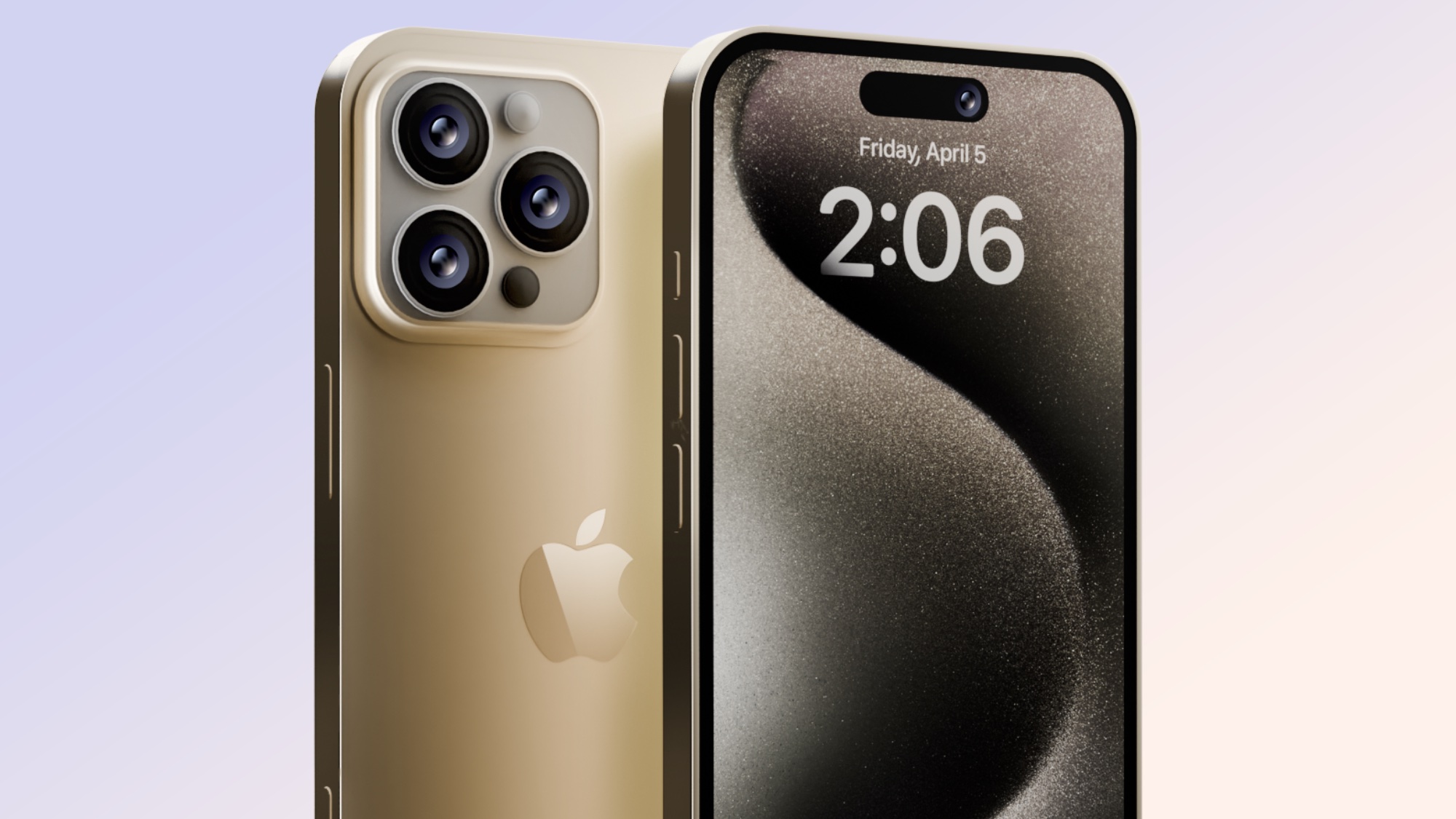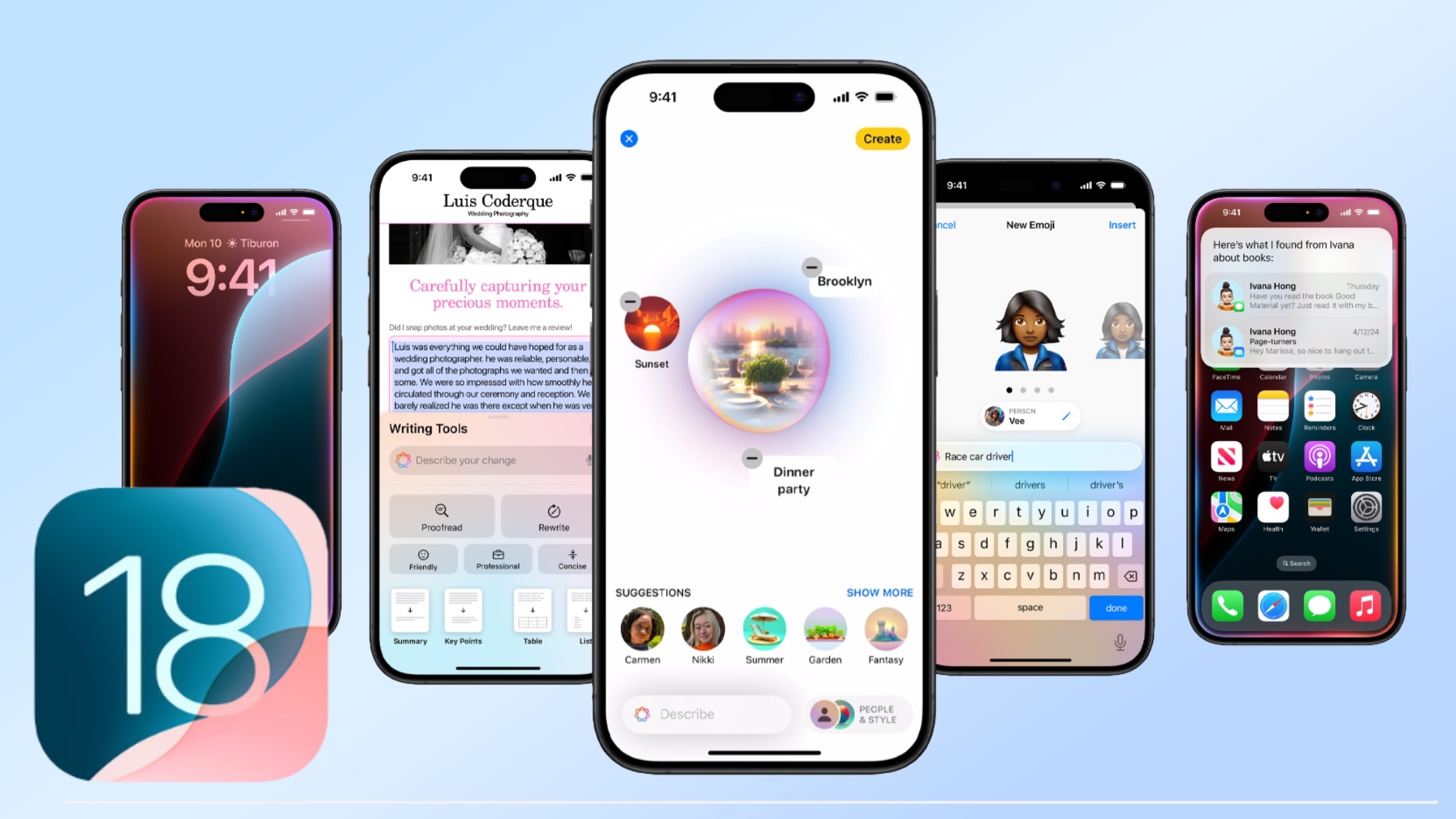
One thing was pretty clear at WWDC 2024 this past week after Apple showcased the Apple Intelligence features that will be coming to its phones later this year: if most of us want to experience things like a more contextually aware Siri assistant alongside writing and image generation tools, we're going to need to get a new iPhone.
That's because right now, the only iPhones capable of running Apple Intelligence are the iPhone 15 Pro and iPhone 15 Pro Max, both of which are powered by Apple's A17 Pro system-on-chip. Presumably, the ranks of Apple Intelligence-supporting phones will grow this fall when the iPhone 16 models arrive.
So does that mean a crush of iPhone upgrades later this year, as people clamor to enter the brave new world of Apple Intelligence-equipped devices? Let's say that opinion is divided.
"Apple Intelligence will definitely drive a super cycle of upgrades for Apple in the years to come, as consumers are going to be hungry for these AI features, which are only available on newest top-of-the-line iPhones," said Nabila Popal, a senior research director at IDC.
Tuong Nyguen, a director analyst at Gartner, isn't so sure, at least not right away. "While the Apple Intelligence features announced were meaningful, the improvements introduced aren’t really why people buy new phones or change ecosystems," he said.
Those two opinions about iPhone sales growing thanks to Apple Intelligence features — in the long run, sure, but probably not right away — likely reflect what a lot of people are thinking immediately after seeing those AI-powered features in action. When we put the iPhone 16 upgrade question to Tom's Guide staffers, we got a similar slew of mixed responses.
What Apple Intelligence means for the iPhone
"AI enables this already magical device to become magical again."
— Tuong Nyguen, Gartner
But whether an iPhone 16 is in your immediate plans or not, there seems to be a consensus that Apple Intelligence is going to be a big part of the iPhone experience going forward — just as AI should be a major driver of smartphone innovation throughout the industry.
Nyguen points to the Arthur C. Clarke quote about advanced technology being indistinguishable from magic to explain the push by Apple and others to add AI features to their phones.
"We’re heading into nearly two decades of the smartphone. Users are desensitized to how amazing it is to have a handheld device that can endlessly entertain, give you almost any information you want, provide real time/near real time communications with almost anyone in the world, etc," Nyguen said. "AI takes this experience and enables this already magical device to become magical again, enabling users to interact with the device in a multitude of more intuitive ways, provide contextual understanding of the user and environment to further improve these interactions and more."
Certainly, that description seems to apply to Apple Intelligence. And while Apple pitches its AI capabilities as something that will work across many of its platforms — indeed, iPads and Macs with M1 chips and higher will be able to access Apple Intelligence — a lot of the initial features seem developed specifically with the iPhone in mind.
In Mail, Notes and Messages, iPhone users will be able to take advantage of a feature called Rewrite that can suggest different tones and phrasing, while a proofreading feature will check your grammar. Summaries apear across multiple apps, including notifications where key details get called out.

Besides the AI-powered writing tools, Apple Intelligence also leans heavily into image creation. You'll be able to create your own emoji — or Genmojis, as Apple calls them — with text prompts, and an Image Playground feature lets you whip up images to share in Messages. The iOS 18 Photos app is getting a Memories feature, where you can use text prompts to create a photo collection complete with its own organizing chapters and background music.
An overhaul of Siri may be the highlight of Apple Intelligence. Apple's digital assistant should be getting smarter, with the ability to carry out specific tasks within apps — built-in apps at first, but third-party apps down the road. More importantly, Siri is becoming context aware, so that you'll be able to string together commands without having to repeat the apps or prompts you mentioned previously.
That's what IDC's Popal is looking forward to. "To me the best feature will be the much awaited 'life like' assistant emerge out of Siri, a feature many of us rarely use outside of setting alarms," she said. Assuming the demos of Siri pan out, Popal says we could be getting a new assistant "that can perform tasks across apps while being context-aware of our personal situations and take consumers into the promised land of an App-free world."
Apple Intelligence outlook
But again, Apple's work with Apple Intelligence has only started. The features will carry a preview label when they arrive on the iPhone 15 Pro models, implying that Apple wants to manage expectations about what these features will do out of the gate.
And perhaps that explains why there may not necessarily be a spike in iPhone upgrades this fall solely because of Apple Intelligence.
"AI is a popular, but often a confusing term... especially among consumers," Nguyen said. "I think the more interesting question is 'why' consumers are — or should be — interested in AI on phones. I would posit that it’s the magic that AI brings to phones – the potential to make these devices we take for granted amazing again."







